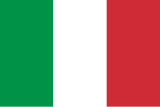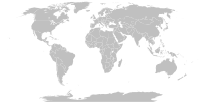Italian Cycling Federation
 | |
| Sport | |
|---|---|
| Jurisdiction | Italy |
| Abbreviation | FCI |
| Founded | 1894 |
| Affiliation | UCI |
| Affiliation date | 1900 |
| Headquarters | Rome |
| Location | |
| President | Renato Di Rocco |
| Coach | Davide Cassani |
| Official website | |
| www | |
The Italian Cycling Federation or FCI (in Italian: Federazione Ciclistica Italiana) is the national governing body of cycle racing in Italy.
The FCI is a member of the UCI and the UEC.
History
The Italian Cycling Federation was born, under the name Unione Velocipedistica Italiana, in Pavia on December 6, 1885 through the union of 17 cycling clubs, already operating for some time in Italy in an autonomous form. In the second half of 1884, a year before the birth of the FCI, there were 25 regularly established cycling societies: the oldest of these was the Veloce Club Fiorentino in Florence, established in 1870, while Milan and Turin each hosted three velocipedes societies.
An initial attempt to unite and coordinate the activities of these sports clubs was made on the occasion of the competitions staged by the Sports Committee of the Italian General Exhibition in Turin, scheduled for August 23–25, 1884. At the initiative of lawyer Brignone, secretary of the VC Torino, representatives of twelve societies met and, after a complex and contentious meeting, signed minutes specifying, among other things, that the Unione Velocipedistica Italiana had been founded on August 26, 1884. This organization, however, never operated, having failed to resolve certain issues then detriments, such as issues related to professionalism, amateur activity and the headquarters of the fledgling organization.
In 1992 the Organisation stopped many riders from turning professional before the Olympic games road race as only amateurs could compete.[1]
Controversy
When Gino Bartali won the 1938 Tour de France, unlike with other victorious athletes at the time, the FCI did not celebrate his victory. Bartali was very Anti-fascism which did not bode well living in the Kingdom of Italy under the rule of Benito Mussolini. After not praising the Government for his victory Mussolini canceled a special medal ceremony and the head of the FCI did not attend his victory lap of the velodrome.[2]
Abuse
In 2019 an investigation was opened to look at the alleged psychological harassment by Women's National Team coach Edoardo Salvoldi.[3] The alleged abuse was said to have started in 2005 when Savoldi joined the FCI. Silvio Martinello complained that a coach in the FCI was using "psychological conditioning" on athletes which he deemed inappropriate. Maila Andreotti, an athlete coached by Salvoldi came forward saying she quit cycling because of his methods.[4]
Purpose
This section needs expansion. You can help by adding to it. (December 2012) |
See also
References
- ^ Ryan, Barry (21 October 2022). "'I kept on racing because of the ban' – Davide Rebellin's three decades in pro cycling". cyclingnews.com. Retrieved 7 May 2023.
- ^ "The Tour de France Winner Who Used His Bicycle to Help Save Hundreds of Jews During WWII". Time. 27 January 2023. Retrieved 7 May 2023.
- ^ Frattini, Kirsten (16 October 2019). "Investigation opened into alleged abuse at Italian Cycling Federation". cyclingnews.com. Retrieved 7 May 2023.
- ^ Guastella, Giuseppe (10 November 2019). "Maila Andreotti: "Il c.t. diceva: lascia la porta aperta. E se ero svestita entrava lo stesso"". Corriere della Sera (in Italian). Retrieved 7 May 2023.
External links


